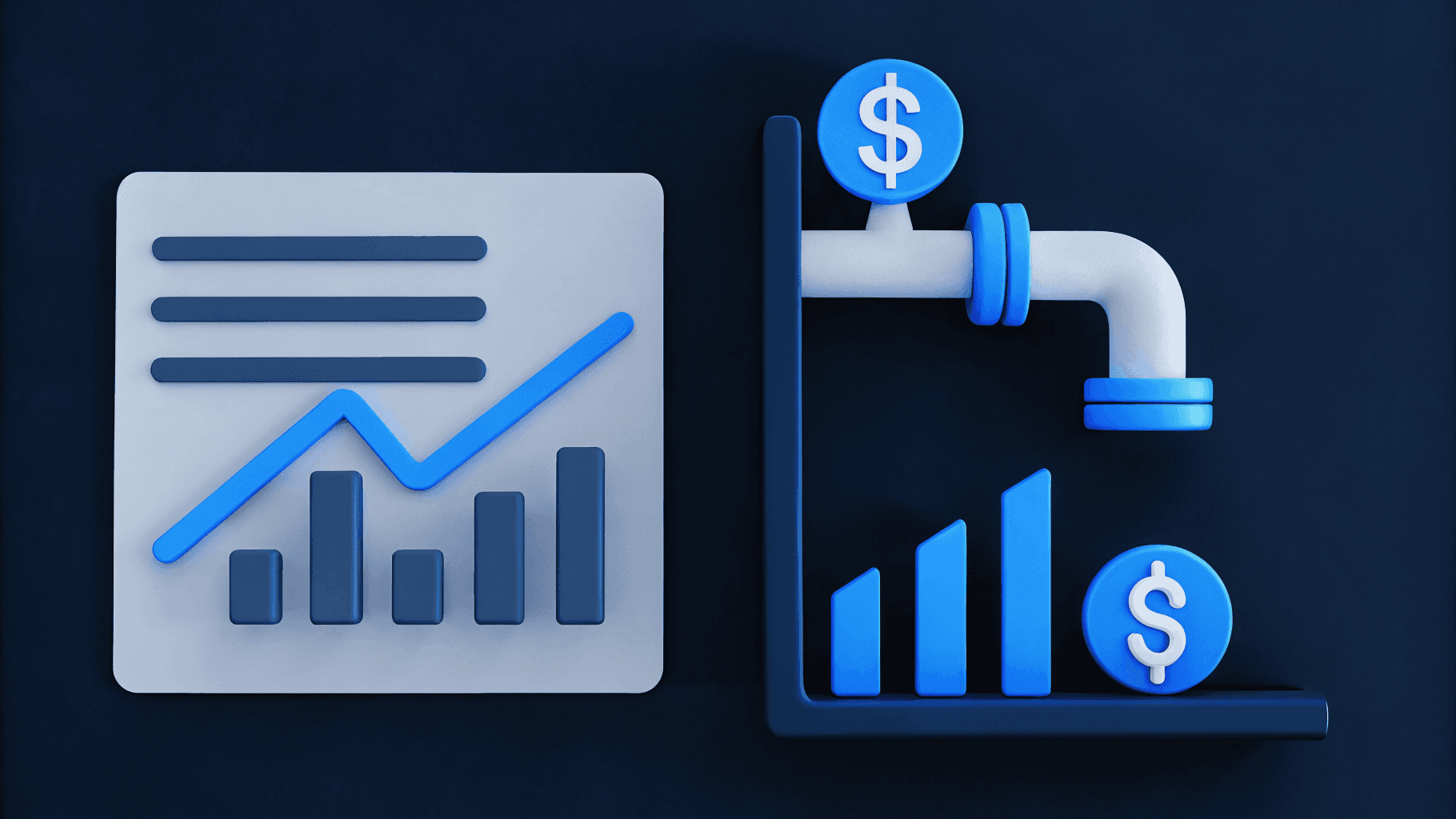Sunday, December 29, 2024
Website Design Cost Calculator: How Much Should Your Site Really Cost in 2025

The calculator offers clarity on what factors impact your website's cost so you can build consensus on budget allocation. Dive in to explore how this calculator can guide you in establishing a realistic budget for your next digital project.
In brief:
- A Website Design Cost Calculator can clarify the expenses involved in web development projects.
- Main factors influencing website cost include design complexity, functionality, technical requirements, content management, and site size.
- Options for website creation range from DIY builders to freelancers to professional agencies, each with different costs and benefits.
- Ongoing costs such as maintenance, support, and scalability should be included in your budget planning.
Webstacks websites don’t just look good—they scale with you and drive real results.

5 Core Website Design Cost Factors
When calculating website costs, five main factors consistently drive the overall investment. Understanding these components helps you make informed decisions about your website budget.
Website Size and Structure
The number of unique pages directly impacts development time and cost:
- Basic websites (5-10 pages): $2,500-$5,000
- Medium-sized websites (11-20 pages): $5,000-$8,000
- Large websites (21-50 pages): $8,000-$15,000
- Enterprise websites (50+ pages): $15,000+
Design Complexity
Your design choices significantly affect the total investment:
- Template-based design: $1,500-$5,000
- Custom design with unique branding: $3,000-$15,000
- Advanced features like animations and interactive elements can add: $1,000-$5,000
Core Functionality
Key website features include:
- Planning and strategy: $3,300
- Basic functionality such as contact forms and social integration: $500-$1,500
- Advanced functionality like databases and custom applications: $2,500-$10,000
- E-commerce capabilities start at $12,550
For specialized needs, such as SaaS platforms, understanding SaaS website cost can provide valuable insights into budgeting for advanced functionalities.
Technical Foundation
Critical technical elements that impact cost:
- SEO foundation setup: $1,980
- Responsive design implementation: $1,000-$3,000
- Cross-browser testing and optimization is included in development
- Security setup and SSL certification range from $330-$500
Content Management
Content-related expenses vary based on your needs:
- Professional copywriting: $500-$5,000
- Content Management System (CMS) setup: $2,000-$5,000
- Image optimization and media handling: $500-$2,000
- Content migration (if applicable): $330-$1,000
All these factors combine to form your total website investment. For example, a typical business website with custom design, basic functionality, and professional content often ranges from $8,800-$15,000. Remember that investing in quality upfront often reduces long-term maintenance costs and provides better business results.
How to Know Your Options
When it comes to website development, you have three main paths to consider, each with its own price point and trade-offs.
DIY Website Builders
The most budget-friendly option starts at around $5 to $65 per month using DIY website builder platforms. While this approach offers the lowest financial investment, it requires significant time commitment and technical learning. You'll have complete control over your site, but you'll need to handle everything from design to maintenance yourself. For instance, a small business owner might use a DIY platform to create a simple website showcasing their services, spending minimal upfront costs but investing personal time to learn the platform.
Freelance Developers
Working with freelancers typically costs $30 to $150 per hour, with most charging between $50-$75 hourly. A basic website project might range from $2,000 to $20,000, depending on complexity. Freelancers offer a middle-ground approach and provide professional expertise at a lower cost than agencies. They're ideal for smaller projects with clear scope and businesses comfortable managing individual contractors. For example, a startup needing a custom web application might hire a freelancer to develop specific functionalities, balancing cost with professional expertise. If you're looking to redesign a website on a budget, freelancers can offer a cost-effective solution without compromising on quality.
Professional Agencies
Agency partnerships represent the highest investment but offer the most comprehensive service. Expect to pay $3,000 to $15,000 for a standard business website, with complex projects reaching $100,000 or more. Agencies provide full-service solutions including strategy, design, development, and ongoing support. They're best suited for businesses needing sophisticated functionality, custom designs, or lacking internal technical resources. An established company looking to overhaul their online presence and considering the website redesign cost might partner with an agency to handle everything from branding to development, resulting in a cohesive and high-quality outcome. Collaborating with a Builder.io certified agency can ensure your website is built with modern tools and practices.
The best choice depends on your specific circumstances. Consider DIY if you have more time than budget and need a simple site. Choose freelancers when you want professional quality at moderate prices and can manage the project yourself. Opt for agencies when you need comprehensive service, have complex requirements, or want a strategic partner for your digital presence.
Additional Cost Considerations
When budgeting for your website, several ongoing and hidden costs require careful consideration beyond the initial design and development. For fast-growing companies, these costs can significantly impact your total investment.
Regular website maintenance costs typically involve 10-15 minutes of attention at least twice weekly, translating into staff time or outsourced costs. Technical support can range from $0-$1,000+ monthly, depending on your needs and response time requirements.
Content delivery networks (CDN) and performance optimization introduce variable costs. CDN providers may offer free basic plans, while others charge based on data usage, with costs around $0.08 per GB after certain thresholds. For example, an e-commerce site experiencing rapid growth may find that investing in CDN services significantly improves site performance for users worldwide, justifying the additional monthly costs.
Marketing and optimization expenses typically scale with your business size:
- Small websites: 2-5% of revenue
- Medium-sized websites: 5-10% of revenue
- Large websites: 10-15% of revenue
For growing companies, integration capabilities and scalability costs become increasingly important. Factor in expenses for:
- Email hosting: $1-$5 per user monthly
- Security updates and monitoring
- Regular performance optimization
- Integration with CRM and marketing automation tools
- Compliance maintenance for regulations like GDPR
Remember to account for internal resource costs if handling maintenance in-house, as these hours represent a real investment in your website's upkeep. As your company grows, these costs typically increase to support higher traffic volumes and more complex functionality requirements.
How to Make an Informed Decision About Your Web Design Budget
Once you have estimates from a website cost calculator, use them as a starting point for your decision-making process. Compare these numbers against quotes from 3-4 different providers to understand the real market range for your requirements.
When evaluating potential partners, look beyond the bottom line. Review their portfolio for projects similar to yours, particularly in your industry. Check client testimonials and case studies to verify their expertise and reliability. Professional rates typically range from $30-$150 per hour, with project costs varying from $1,000 for basic sites to more than $95,000 for complex platforms.
Focus your evaluation on these key aspects:
- Transparency in pricing and project scope documentation
- Clear communication and project management processes
- Technical expertise with your required platforms
- Ongoing maintenance and support options
- Portfolio of relevant work in your industry
After gathering this information, create a comparison matrix of your top choices. Prioritize providers who offer the best balance of expertise, communication, and value rather than just the lowest price. Remember that a well-executed website is an investment that will serve your business for years to come.
Our Take on Website Design Cost Calculator
At Webstacks, we've seen firsthand how understanding the true cost of website development empowers businesses to make strategic decisions. Calculating your website budget isn't just a budgeting tool—it's a way to align your digital presence with your business goals. By breaking down costs transparently, companies can allocate resources effectively, whether they opt for a DIY approach, hire freelancers, or partner with an agency like ours. We believe that an informed client is an empowered one, and tools that demystify the development process are invaluable in fostering successful collaborations and delivering websites that drive real business results.
Ready to optimize your SaaS website structure for growth? See the Webstacks difference: Schedule a brief discovery call today. Let us help you create a website that drives results.
Webstacks websites don’t just look good—they scale with you and drive real results.




